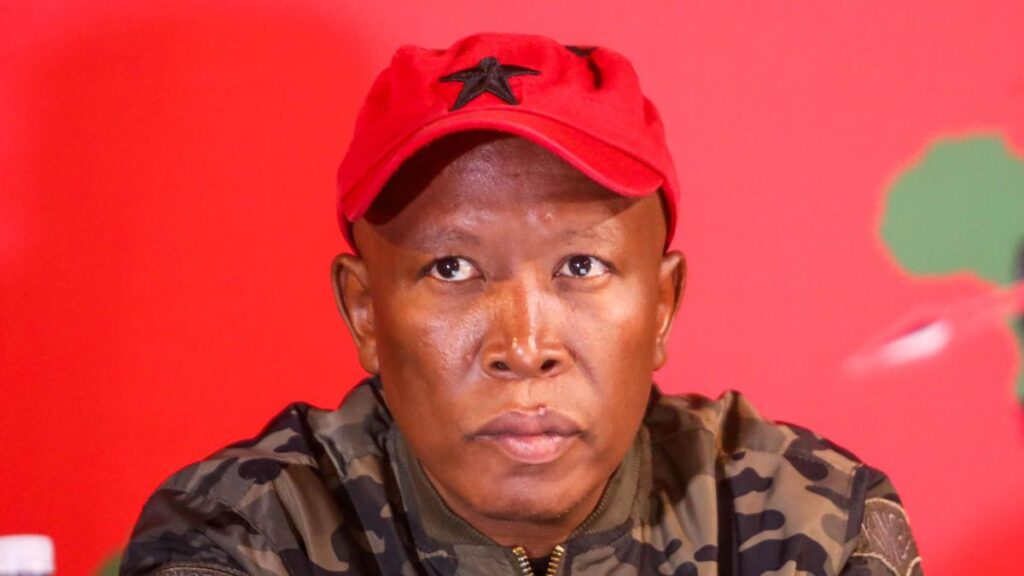The Economic Freedom Fighters (EFF), a radical opposition party in South Africa, finds itself experiencing significant turbulence as it grapples with high-profile defections that signal a potential decline in its influence. The latest defection is that of Dali Mpofu, a former EFF chairperson and advocate, who has made headlines for joining uMkhonto weSizwe (MK), the armed wing of the African National Congress (ANC). Mpofu cited “soul-searching” as a reason for his decision and viewed MK as a vehicle for achieving essential black and progressive unity in South Africa. His move reflects the challenges facing the EFF, a party led by the charismatic Julius Malema, which initially garnered support from the youth of South Africa due to its promises of radical political and economic reforms since the end of apartheid. However, the party suffered a blow in the recent May elections, dropping from the third largest party to fourth, thereby raising concerns about its sustainability and appeal in the political landscape.
The EFF’s decline is further underscored by the electoral success of MK, which made its debut in the elections following its formation the previous year. The party was strengthened by former President Jacob Zuma, who campaigned energetically for MK after being released from prison in 2021. Zuma’s leadership during the election solidified his influence, especially since both the EFF and MK promote similar economic policies, including land expropriation and state ownership of key sectors. Analysts posit that Mpofu’s defection is reflective of a wider political ambition among EFF members seeking quicker paths to power, especially as MK’s presence in the political arena continues to grow. This apparent trend of defection raises questions about the EFF’s ability to maintain its leadership and voter base amid internal and external challenges.
The recent wave of departures from the EFF includes not just Mpofu but also other prominent members, raising alarms about the party’s future. Malema has attempted to address these changes, acknowledging that Mpofu’s decision did not come as a shock and urging party supporters to rally around him amidst the upheaval. However, the high-profile nature of these defections, including that of Malema’s deputy, Floyd Shivambu, adds strain to the party’s image and status within South African politics. Political analysts assert that despite the potential for revitalization through this “pruning process,” the EFF must confront the underlying issues of leadership and member dissatisfaction that these departures indicate.
Dali Mpofu previously held a significant position within the EFF and has been instrumental in the party’s legal challenges, representing both the EFF and, more recently, Zuma in court matters. His history with the ANC, prior to joining the EFF, reflects deep political ties in South Africa, which add complexity to his recent actions. In announcing his shift to MK, Mpofu stressed that there was no animosity with Malema, but his involvement in MK speaks volumes about the shifting allegiances within South African political circles. Fuelling the narrative of factionalism, political analyst Sandile Swana interprets Mpofu’s decision as an opportunity for him to seek more favorable political prospects under Zuma compared to the EFF’s leadership under Malema.
Amid the shifts in loyalty, concerns about Julius Malema’s leadership style have surfaced. With criticism of his purported dictatorial approach, there is a growing sentiment among EFF members regarding leadership succession. Analysts have noted that many party members perceive Malema as having cultivated an insular environment whereby prospective leaders are seen as threats, which hampers broader democratic engagement within the party. The tension surrounding leadership dynamics within the EFF could potentially lead to further fractures as more members consider their options in light of the evolving political landscape.
In the wake of these internal challenges and external pressures, Julius Malema continues to project confidence in the face of uncertainty. His recent posts suggest a sense of foreboding regarding additional defections to rival factions, yet he remains adamant about fortifying the EFF against what he terms a “criminal syndicate.” Through these communications, Malema is rallying his supporters and attempting to create a unified front against the growing dissent and defections within the party. In navigating this precarious course, the EFF’s future depends heavily on its ability to address internal grievances while simultaneously countering the external threats posed by rival factions like MK, under Zuma’s leadership. As the political landscape continues to evolve, the EFF must redefine its strategic direction to reclaim its place as a formidable force in South African politics.

